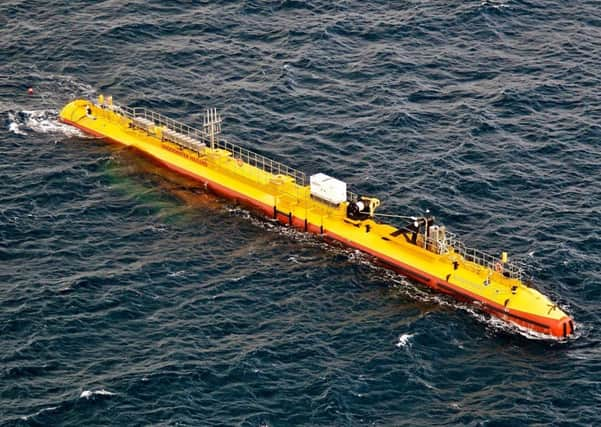Leader comment: Why Scotland has a headstart in tidal energy race


In the 1970s, Edinburgh University scientist Steven Salter invented what became known as “Salter’s ducks”. The device was designed to sit on the surface of the sea, turning the energy of the waves into electricity with every ‘nod’ of its head.
The 1973 oil crisis – which those of a certain generation may remember as a period when families sat around playing board games by candlelight – had suddenly made alternative sources of energy interesting. While the project showed promise, it was eventually shelved in the early 1980s after oil prices fell and the Government withdrew funding. In hindsight, it may have been a missed chance.
Advertisement
Hide AdAdvertisement
Hide AdThe UK was also slow to pick up on the potential of wind energy while countries like Denmark stole a march in the 1980s. The Danish firm Vestas, which now employs more than 24,000 people, has since installed 94 gigawatts of wind turbines in 79 countries, more than any other company in the world.
However, this tale of opportunities lost may be about to enter a new chapter, one that could finally lead to a happy ending.
A tidal turbine installed beneath the waves near Orkney has managed to operate almost continuously for a year. Orkney’s European Marine Energy Centre has tested 30 different devices since 2003, but the SR2000 is by far the most successful, generating more electricity than all of the others combined.
Four other tidal turbines in the Pentland Firth, installed after the SR2000 began operating, have also produced large amounts of electricity in their first year.
So it would appear that tidal energy is on the brink of providing clean, renewable energy on a commercial scale; this could be a false dawn but it could also be the beginning of a major global industry.
The decline in the North Sea oil industry has been so marked that Andrew Wilson did not include revenue from the sector in the recent Growth Commission report on the economics of an independent Scotland, deciding to treat any income produced simply as a bonus. The oil industry has been a driving force of the Scottish economy for years, but it has also given Scotland a considerable headstart in what could be a tidal energy revolution – a workforce skilled in heavy engineering at sea.
As the world moves to a zero-carbon economy, Scotland must make sure it doesn’t miss another chance to grasp the future.
